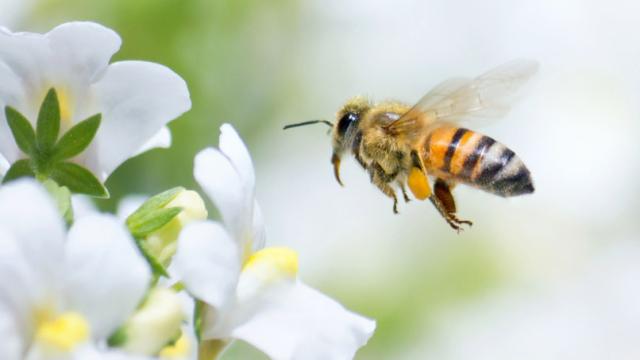Evidence has been piling up that neonicotinoids, a class of ubiquitous pesticides, play a role the recent decline of bees. A new study adds worrying and unexpected evidence: Bees actually prefer food contaminated with neonicotinoids — probably because it’s getting them high.
This new study is important because a lot of controversy over the neonicotinoids has centered on exactly how much of the pesticides a bee is naturally exposed to. Pesticide companies, for example, have seeked to downplay the exposure — one theory being that bees will avoid neonicotinoid-laced food because it tastes bad. The study published in Nature shows that is not true.
When scientists in the UK recorded from the taste receptor neurons of bumblebees and honeybees, they found the bees could not taste the neonicotinoids at all. But both types of bees still preferred drinking neonicotinoid-laced sugar water. What’s going on? Well, neonicotinoids are similar to nicotine, so it’s likely that the pesticide is giving them some sort of high.
That’s all very troubling because it means bees may be exposed to higher levels of neonicotinoids than thought. Europe has already banned neonicotinoids, and the US Environmental Protection Agency is currently reviewing the data on bees. There’s sure been a lot of evidence against neonicotinoids lately — but is it enough?
[Nature via New York Times]
